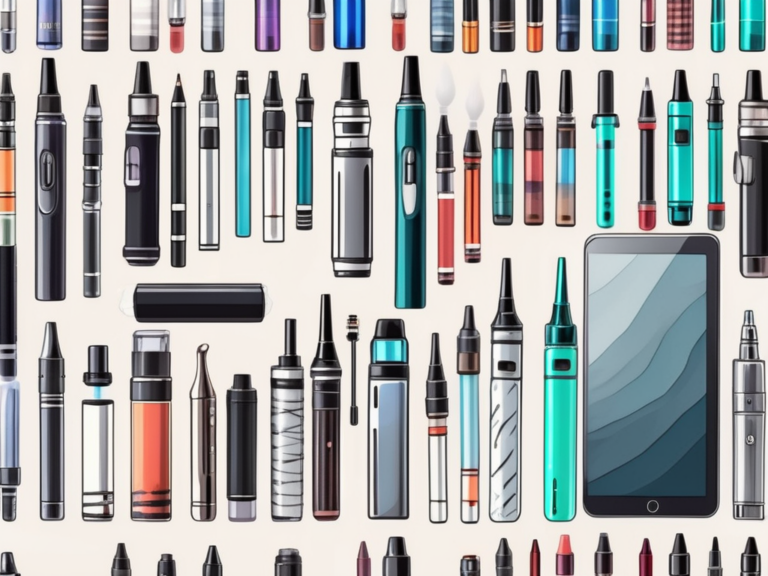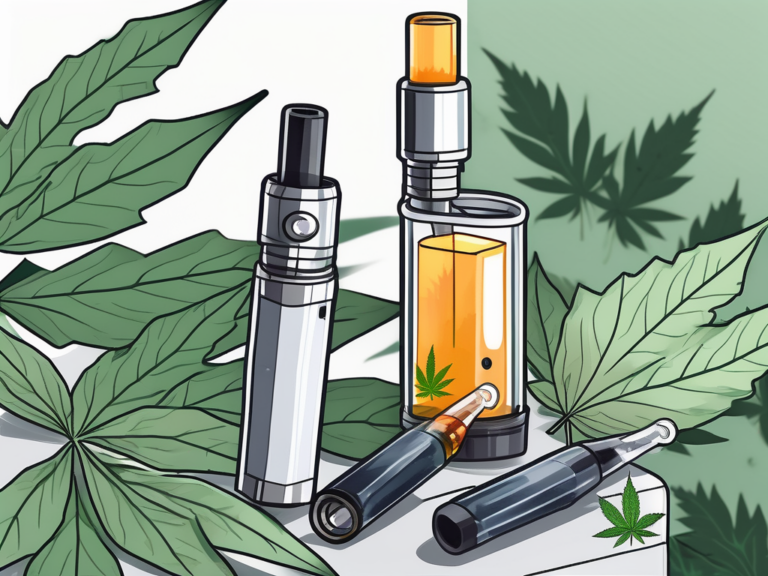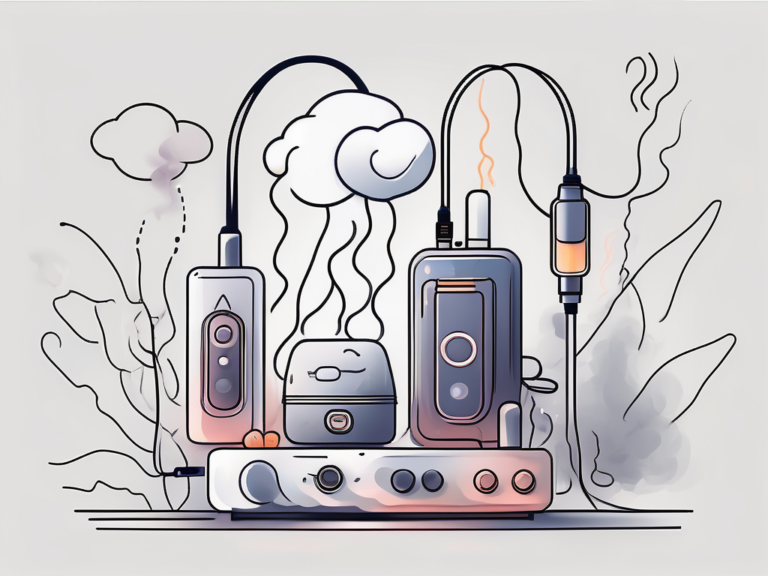how old do you have to be to buy vapes
Vaping has become increasingly popular among young adults and teenagers in recent years. With its rise in popularity, it is important to understand the regulations surrounding vaping, especially when it comes to age restrictions. This article will provide you with an overview of vaping and its regulations, age restrictions for vaping across the globe, the consequences of underage vaping, how to prevent underage vaping, and answer frequently asked questions about vaping age restrictions.
Understanding Vaping and Its Regulations
Before diving into the age restrictions for vaping, it is essential to have a clear understanding of what vaping actually is. Vaping refers to the act of inhaling and exhaling an aerosol, often referred to as vapor, produced by an electronic cigarette or similar device. These devices, commonly known as vapes, typically consist of a battery, heating element, and a container or cartridge filled with an e-liquid.
Vaping has gained popularity as an alternative to traditional smoking, with many users citing it as a potentially less harmful option. The process of vaping involves the user drawing on the device, which activates the heating element, turning the e-liquid into vapor. This vapor is then inhaled, delivering the desired nicotine or flavorings to the user.
What is Vaping?
Vaping devices work by heating the e-liquid, which usually contains nicotine, flavorings, and other chemicals, into an inhalable aerosol. This aerosol is then inhaled into the lungs, providing the user with a sensation similar to smoking traditional cigarettes. However, it is important to note that vaping does not involve the combustion of tobacco, which reduces the exposure to harmful chemicals found in tobacco smoke.
One of the key attractions of vaping is the wide range of flavors available to users. E-liquids come in a variety of flavors, from traditional tobacco and menthol to more exotic options like fruit and dessert flavors. This variety allows users to customize their vaping experience to suit their preferences, making it a popular choice among smokers looking to transition away from traditional cigarettes.
The Legal Aspects of Vaping
The legality of vaping varies from country to country, and it is important to familiarize yourself with the regulations in your specific location. In many countries, the legal landscape surrounding vaping is still developing, leaving room for further legislation to be enacted. However, most jurisdictions have implemented some form of regulation to govern the sale, possession, and use of vaping products, particularly when it comes to underage individuals.
Regulations often focus on age restrictions, with many countries prohibiting the sale of vaping products to individuals under a certain age, typically 18 or 21 years old. Additionally, some jurisdictions have imposed restrictions on where vaping is allowed, such as banning it in enclosed public spaces or areas frequented by children. These regulations aim to strike a balance between allowing adult users access to vaping products while protecting minors from the potential harms associated with nicotine consumption.
Age Restrictions for Vaping Across the Globe
Age restrictions for purchasing and using vaping products vary around the world. In this section, we will take a closer look at the vaping laws in the United States, Europe, and Asia.
Understanding the age restrictions for vaping is crucial in promoting responsible use and protecting the health of individuals, especially young adults. Let’s delve deeper into the regulations governing vaping in different regions to gain a comprehensive understanding of the global landscape.
Vaping Laws in the United States
In the United States, the legal age to purchase and use vaping products, including e-cigarettes, is 21 years old. This age restriction was implemented in December 2019 as part of the federal Tobacco 21 law. Prior to that, the legal age varied from state to state, with some states allowing individuals as young as 18 to purchase vaping products.
It is important to note that the enforcement of age restrictions for vaping products in the United States is a shared responsibility among federal, state, and local authorities. This multi-level approach aims to create a cohesive regulatory framework that ensures compliance and promotes public health.
Vaping Laws in Europe
The regulations surrounding vaping in Europe vary among different countries. For example, in the United Kingdom, the legal age for purchasing and using vaping products is 18 years old. However, some countries have imposed stricter regulations, setting the legal age at 21 or even banning the sale of vaping products altogether.
European countries also focus on other aspects of vaping regulation, such as advertising restrictions, packaging requirements, and product safety standards. These comprehensive measures aim to address the evolving landscape of vaping and its potential impact on public health.
Vaping Laws in Asia
Asian countries have also implemented their own set of regulations when it comes to vaping. In countries like Japan and South Korea, the legal age for purchasing and using vaping products is 20 years old. However, it is important to note that these regulations are subject to change, as vaping continues to gain attention from legislators and health officials around the world.
As the global conversation around vaping evolves, policymakers in Asia are exploring additional measures to regulate the industry effectively. This includes initiatives to monitor vaping trends, conduct research on potential health risks, and engage with stakeholders to ensure a balanced approach to regulation.
Consequences of Underage Vaping
Underage vaping can have various negative consequences, both for the individuals involved and society as a whole. These consequences can range from health risks associated with vaping to legal penalties for underage individuals caught using vaping products.
It is crucial to understand the full scope of the impact of underage vaping beyond the immediate consequences. The ripple effects can extend to families, schools, and communities, creating a burden on healthcare systems and resources. The normalization of vaping among young people can also perpetuate a cycle of addiction and health issues that may persist into adulthood.
Health Risks Associated with Vaping
While vaping is often marketed as a safer alternative to traditional smoking, it is not without risks, particularly for young individuals. Vaping has been linked to a range of health issues, including respiratory problems, cardiovascular problems, and nicotine addiction. The long-term effects of vaping are still being studied, but it is clear that young individuals are particularly vulnerable to the potential harms of vaping.
Furthermore, the enticing flavors and sleek designs of vaping products can mask the harmful substances they contain, leading to a false sense of security among young users. The lack of regulation in the industry also raises concerns about the quality and safety of vaping products, adding another layer of risk to underage vaping.
Legal Penalties for Underage Vaping
The legal consequences of underage vaping can vary depending on the jurisdiction. In many countries, underage vaping is a violation of the law and can result in fines, community service, or other legal penalties. Additionally, some schools have implemented disciplinary measures for students caught vaping, which can include suspension or enrollment in educational programs focused on tobacco and nicotine prevention.
It is important for parents, educators, and policymakers to work together to address the root causes of underage vaping and implement strategies to prevent young people from engaging in this harmful behavior. By fostering open communication, providing education on the risks of vaping, and offering support for those struggling with addiction, we can create a safer and healthier environment for future generations.
How to Prevent Underage Vaping
Preventing underage vaping requires a comprehensive approach involving parents, schools, and the community as a whole. By working together, we can create an environment where young individuals are informed about the risks of vaping and are supported in making healthy choices.
Role of Parents in Preventing Underage Vaping
Parents play a crucial role in preventing underage vaping. By engaging in open and honest conversations about the risks associated with vaping, parents can educate their children and establish clear expectations regarding the use of vaping products. It is also important for parents to set a good example by avoiding vaping themselves and by creating a smoke-free and vape-free home environment.
Role of Schools in Preventing Underage Vaping
Schools also have a responsibility to educate students about the risks of vaping and provide support for those who may be struggling with addiction or peer pressure related to vaping. Implementing comprehensive tobacco and nicotine prevention programs, enforcing strong disciplinary measures for vaping violations, and promoting healthy coping mechanisms can all contribute to preventing underage vaping.
Frequently Asked Questions about Vaping Age Restrictions
Can You Vape If You’re Under 18 with Parental Consent?
In most jurisdictions, underage individuals are not allowed to vape even with parental consent. The age restrictions are put in place to protect young individuals from the potential harms associated with vaping, regardless of parental consent.
What Happens If You’re Caught Vaping Underage?
The consequences of being caught vaping underage can vary depending on the jurisdiction. In many cases, individuals caught vaping underage may face legal penalties, such as fines or community service. Additionally, schools may enforce disciplinary measures, such as suspension, to address underage vaping among students.
In conclusion, the age restrictions for purchasing and using vaping products vary around the world. It is important for individuals to familiarize themselves with the regulations in their specific location and for parents, schools, and communities to work together to prevent underage vaping. By understanding the health risks associated with vaping, enforcing legal penalties, and promoting education and awareness, we can create a safer environment for young individuals and reduce the prevalence of underage vaping. Remember, it is crucial to prioritize the health and well-being of our youth by helping them make informed decisions and providing necessary support.






